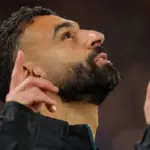Joseph-Antoine Bell’s controversial actions cast shadow over Cameroon football’s resumption
Cameroon Football Federation (Fecafoot) president Samuel Eto’o may find himself facing significant financial challenges following the resumption of the Elite One championship for the 2024-2025 season. Despite his ambitious goal of making the league the best in Africa, Eto’o is now embroiled in controversy over inflated stadium costs.
Last Saturday, the first division of Cameroonian football returned after a lengthy seven-month suspension.
Eto’o, present for the opening match between Stade Renard de Melong and Aigle Royal du Moungo (a 0-0 draw), expressed his commitment to organizing the most competitive league in Africa, despite ongoing concerns regarding player salary payments.
As part of his plans to enhance the league, Eto’o requested the National Office of Infrastructure and Sports Equipment (Onies) for the provision of stadiums for the competition.
However, this request has led to unexpected tension, particularly with Onies, which is chaired by Joseph-Antoine Bell.
Bell, who reportedly has a strained relationship with Eto’o, is now at the center of a dispute over the costs associated with using the stadiums.
Faustin Blaise Mbida, Secretary General of the Transitional Council of Professional Football (CTFP), expressed concern over the inflated charges.
Speaking on RSI, Mbida revealed that Eto’o had requested the invoices from Onies but was shocked by the excessive figures.
“The president asked Onies for the invoices, but I assure you that the figures we received are scary,” Mbida remarked, hinting at the potential financial burden this could impose on the federation.
Mbida went further to suggest that these invoices would be revised, though it remains unclear how much they would be reduced.
His comments imply that the charges may not have been reasonable and that the figures could have been inflated based on personal conflicts.
“We have the impression that we are sending out invoices based on people’s heads,” he said.
The dispute has raised questions about the financial management of the league and the relationship between Eto’o and Bell.
With many stadiums owned by local municipalities, Mbida emphasized the need for dialogue between the clubs to find equitable solutions, indicating the possibility of further negotiations or even a standoff.
The outcome of this disagreement will likely have lasting implications for the future of Cameroonian football and its leadership.
On a l’impression qu’on envoie les factures en fonction de la tête des gens. On va s’asseoir avec les clubs et on va trouver des solutions, car il y’a des stades qui appartiennent à des municipalités .»
— L’equipe237 (@LEquipe237) December 9, 2024




